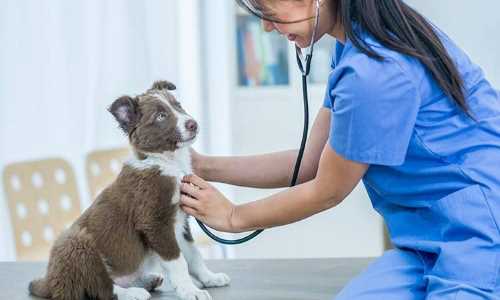How Can You Prevent Your Dog From Getting Distemper
 By
By
Canine distemper is a highly contagious viral disease that affects dogs, coyotes, and other members of the canine family. The virus is spread through contact with respiratory secretions or body fluids, such as saliva, urine, or blood, from an infected animal. It can also be spread through contact with objects or surfaces that have been contaminated with the virus. The distemper virus is resistant to drying and can remain infectious for long periods of time. Dog distemper is a serious disease that can cause a wide range of symptoms, including fever, coughing, sneezing, discharge from the eyes and nose, loss of appetite, and vomiting. In severe cases, the virus can cause pneumonia, seizures, and even death. There is no specific treatment for canine distemper, and outcomes can vary depending on when the dog is treated and how severe the illness is. Prevention is through proper vaccination of dogs and avoidance of contact with infected animals. As a dog owner, it is important to know how to prevent your dog from getting distemper. There are a few things you can do to help prevent your dog from getting this disease. Keep reading to learn more. There are a variety of diseases that can affect dogs, some of which can be deadly. Distemper is one such disease, and it is highly contagious. Fortunately, there is a vaccine available to help protect dogs from developing the disease. The distemper vaccine is given to puppies as part of their initial series of vaccinations, and it should be boosted every year thereafter. It's important to make sure your dog is up-to-date on their vaccinations, as outbreaks of distemper can occur sporadically. Pet vaccinations are important for preventing distemper and a host of other issues. Monitoring your dog's health and behavior is important in order to prevent distemper. By checking your dog's temperature, overall health, and behavior regularly, you can spot any potential problems early on and get them treated before they turn into a bigger issue. Distemper is a serious disease that can cause severe health problems or even death, so it's important to do everything you can to protect your dog from it. There are a few things that you can do to help prevent your dog from getting distemper. One of the most important is to avoid contact with wildlife and stray animals. As discussed, distemper is a highly contagious disease and can be spread through contact with respiratory secretions, urine, or feces. It can also be spread through the air, so it's important to keep your dog away from areas where there may be sick animals. This is especially true if you have unvaccinated puppies. If you suspect that your dog has distemper, it's imperative that you seek veterinary care as soon as possible. Symptoms of distemper vary depending on the species of an animal infected but can include fever, coughing, sneezing, vomiting, diarrhea, loss of appetite, and seizures. In severe cases, the virus can lead to pneumonia, brain inflammation, or even death. Unfortunately, there is no specific cure for distemper, and many cases are fatal. However, treatment options are available for animals that are showing symptoms of the virus. Supportive care, such as fluids and antibiotics, may be given to help the animal recover. In some cases, animals may be treated with antiviral drugs or immunoglobulin therapy. If an animal is diagnosed with distemper, it is important to isolate them from other animals to prevent the spread of the virus. Additionally, the earlier the dog gets treatment, the better the chances of survival will be. Distemper is a serious and potentially fatal disease in dogs. It's important that you have an understanding of the disease, including its symptoms, causes, and treatment options, as well as ways to protect your dog from becoming infected. By being informed and closely monitoring your dog, you can ensure that it is happy and healthy.Vaccinate your dog.
Monitor your dog's health and behavior regularly.
Avoid contact with wildlife and stray animals.
Contact your vet if you suspect an illness.






